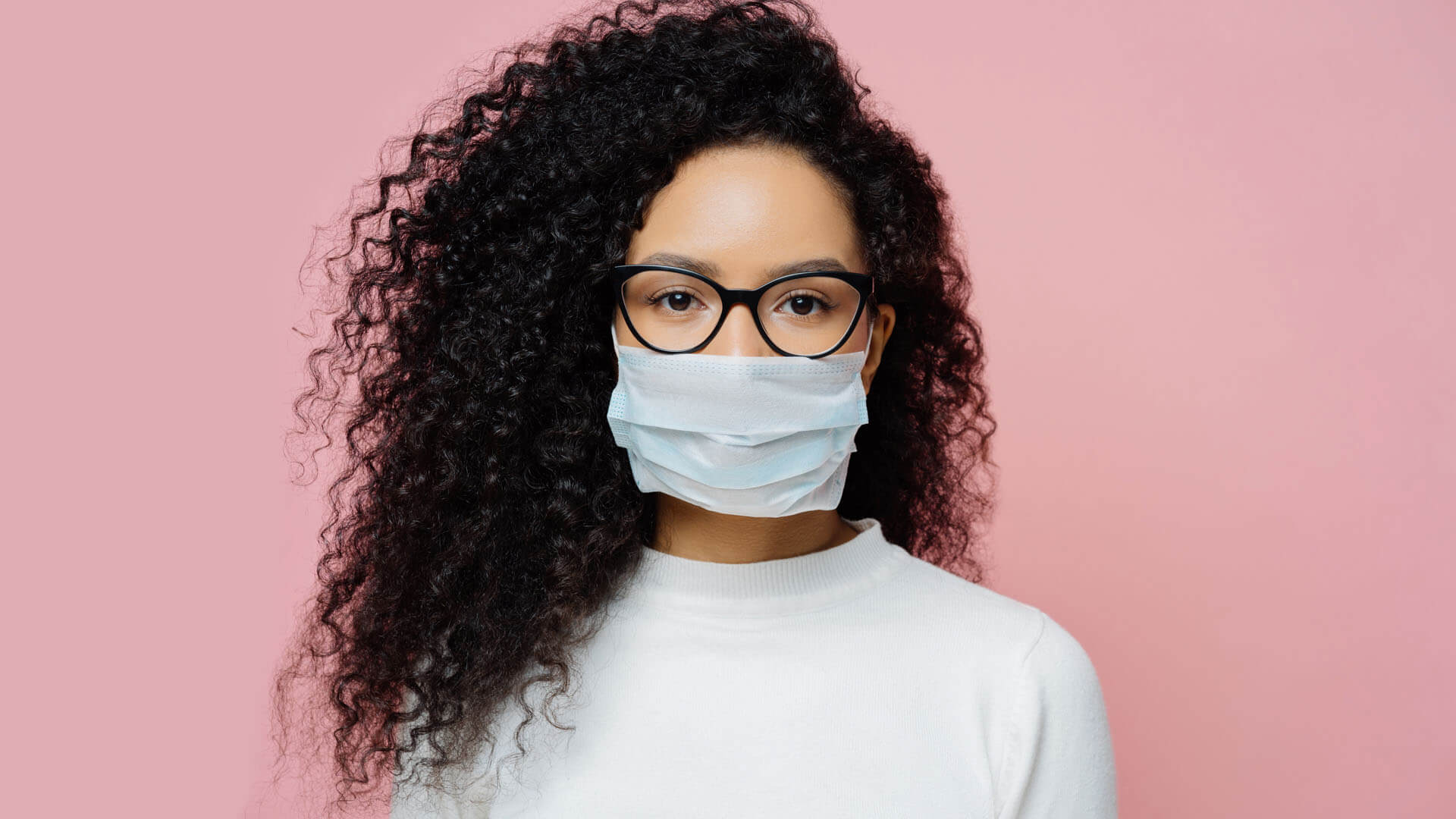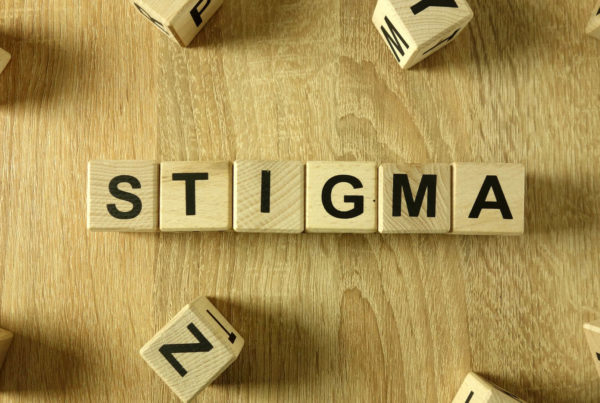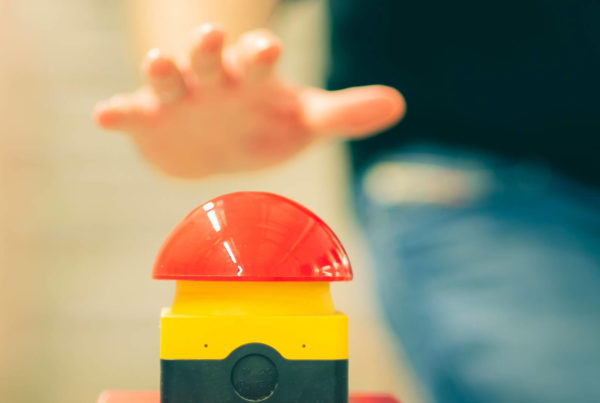In 1882 a group of civic leaders in south Bethlehem, Pennsylvania came together to consider how to respond to an outbreak of smallpox in their community, and established a home for children orphaned in the epidemic. Over the years that organization evolved in response to the needs of its residents and its community, ultimately focusing on mental and behavioral health care under its current name – KidsPeace.
Nearly 140 years later, a new disease again poses enormous challenges. The full story of our response to COVID-19 will not be told for some time, but I wanted to note some key lessons it has taught us so far.
Facing the enemy
In early 2020 news reports detailed the emergence of a novel respiratory disease in China. Many of us may not have realized then the significance of that development; however, our risk assessment team led by Andrew Burke, KidsPeace’s vice president of legal affairs, did recognize the potential for widespread disruption of our operations. We activated elements of our “pandemic plan” – convening a group of senior leaders to examine further implications on our operations should COVID-19 enter the U.S.
Along with that “head start” on planning, we were also fortunate to have outstanding medical professionals guiding our preparations for COVID-19. KidsPeace’s Chief Medical Officer, Dr. Matthew Koval, and the vice president of medical affairs of KidsPeace Children’s Hospital, Dr. Caron Farrell, took on the task of translating the pandemic plan and guidance from public health authorities into working preparations for our organization. We also benefited enormously from exceptional leadership in our various program areas. The Program Leadership Team (PLT), headed by our Chief Program Officer Sue Leyburn, immediately took on the challenge of incorporating the medical experts’ direction by identifying the needed program changes and new protocols, and ensuring they were implemented expeditiously across the KidsPeace continuum of care.
From the beginning of our response Drs. Koval and Farrell were in constant contact with the Centers for Disease Control and state health departments, gathering information and learning along with the authorities about COVID-19. Among the initiatives these contacts sparked was a push to have all associates – and eventually clients – wear masks while in KidsPeace facilities. The implementation of this practice was challenged by a limited supply of PPE across the world in the early stages of the pandemic. However with diligence and trial and error, our purchasing department was able to procure sufficient purchased and hand-made masks to implement mandatory masking across all KidsPeace programs, which proved to be a turning point. The disease appeared ready to spread alarmingly through the workforce until mask-wearing and social distancing was mandated; those protocols greatly reduced transmission of the virus, and a ban on visitors to our campuses and implementation of health screenings of associates entering the facilities also appeared to hold down infection rates.
Along with these protocols, we made other dramatic changes in our operations. In mid-March, we placed a “work-from-home” mandate on our administrative staff. Some 100 individuals began working remotely, with others cutting back on the hours they were physically in our administrative offices and all associates mandated to wear masks and wash their hands while in the building. And we began to communicate more frequently with our associates on our preparations and ways they could help protect themselves and their families from contracting COVID-19. One of our best initiatives was establishing a “help line” phone service staffed by a physician assistant who could answer associates’ questions about health-related matters. We also created and displayed posters across all KidsPeace program locations, featuring reminders and helpful hints to reinforce critical infectious disease prevention measures such as social distancing, hand-washing and masking.
Together, the collaborative spirit, diligence and ingenuity of all parts of our organization were brought to bear on addressing COVID-19, and I could not be prouder of my fellow KidsPeace associates for their contributions.
The programs respond
From the beginning, our pandemic plan identified the congregate care services at our Orchard Hills Campus – KidsPeace Children’s Hospital and our Pennsylvania residential treatment programs – as the area of greatest risk, because of the concentration of staff and youth in the facilities and the high incidence of community spread in this region of Pennsylvania. However, the campus also had a key advantage: space in a vacant module of the Hospital that could serve as an isolation and recovery unit for kids with signs of COVID-19 infection. Contractors and our grounds and maintenance staff built out the ward in a matter of a few weeks, while clinical staff quickly composed a training program in caring for residents in isolation and quarantine for COVID-19.
Early on the learning curve was steep related to the proper use of PPE and additional steps required on the part of our associates to reduce the spread of the virus. But with training and time these skills became more developed and our practices more consistent – keeping both clients and associates safe.
Additionally, we were questioned by staff members and supporters as to why we didn’t send residents back home, and why we continued to accept referrals of children into the programs at Orchard Hills in the face of the pandemic. In a message to associates, Dr. Koval answered these questions succinctly:
“The simple answer is, these kids still need us! Remember that mental health IS healthcare and, just like our colleagues in hospital emergency rooms, we take care of kids with urgent and sometimes life-threatening conditions. The Emergency Departments at our area hospitals are continuing to treat patients with physical health problems during the COVID-19 crisis, and we must do the same … This crisis has NOT stopped children and families from requiring our services.” (In fact, since COVID-19 emerged we have seen a number of children admitted to our programs with mental health issues intensified by the stress of the pandemic.)
We adjusted our residential programming for the “new normal.” Although school districts in Pennsylvania were closed to in-person classes, we realized that the structure of a school schedule remained important for the therapeutic progress of our kids. So we reworked the schedule to continue classes but without intermingling of kids from different housing units, for social distancing purposes. As I noted, we also mandated the use of facemasks and social distancing among all individuals in the facilities.
The result of these moves was that we greatly reduced the risk of widespread infection at Orchard Hills. While we had a small number of clients and associates test positive for COVID-19 in April and early May, the numbers did not rise precipitously and the symptoms associated with these cases were thankfully mild for the majority of those infected.
The news was even better in our other residential treatment programs in Maine and Georgia. Those states did not experience the severity of the outbreak of COVID-19 as Pennsylvania did, and the rapid deployment of our infection control protocols resulted in NO kids and only two staff members testing positive (as of the end of June).
COVID-19 presented our outpatient and community-based programs with a different set of challenges. Treatment in these programs traditionally involve a therapist engaging with multiple clients from the general public each day, either in a clinic or home setting. State health departments consider outpatient psychiatric treatment as an “essential” service (in PA the term is “life-sustaining”), permitting them to stay open. So it was necessary to adopt infection control practices at our outpatient offices – mandatory masking and social distancing, enhanced cleaning and disinfection of the office space, a ban on non-essential visitors, and health screenings as clients and families enter the office space.
KidsPeace was forced to shut down several community programs which were tied to local school districts, after in-person classes in PA and Maine were banned. The unfortunate result was that we were forced to furlough or reassign approximately 60 associates for the duration of the crisis. However, due to some financial assistance from the federal government all furloughed associates were recalled in mid-May.
There are three aspects of our community services that proved to be very valuable in coping with the pandemic:
- First, we were able to expand our use of telehealth – using secure technology to deliver treatment to clients who were unable or unwilling to come to the office in person. Even though we previously had excellent experience with telehealth as a way to cope with the nationwide shortage of child psychiatrists, there has been a lingering reluctance tied to concerns over effectiveness and privacy. Now concerns over COVID-19 have prompted more clients to become familiar with telehealth, and we expect more of them will continue to use it even after the pandemic eases. This growing acceptance is key to efforts by KidsPeace and other providers to convince regulators and payer organizations to fully reimburse telehealth-delivered services going forward.
- Second, our program of providing free walk-in assessments of clients and families in crisis served as a complement to broader community initiatives aimed at reducing the strain on hospital emergency departments from COVID-19. The program in our Allentown, Bethlehem and Mt. Pocono (PA) offices gave residents facing crisis an option to avoid the crowded ERs of local hospitals yet still address their mental health situation. From mid-March through the end of June, more than 160 individuals took advantage of this capability.
- Finally, we want to note the tremendous contributions of our web-based therapeutic support service TeenCentral (www.teencentral.com). In January we added clinical resources to the service, which later proved to be immensely valuable to youth forced to be away from school and friends amid the pandemic. In the months of March, April, May and June of this year, traffic on TeenCentral more than doubled from the same period in 2019, and 91 new “stories” from teens and youth were posted on the site.
In our foster care services, COVID-19 forced a “mixed-bag” of mandates and protocols related to in person visitation of foster homes. The transition from in-home / in-person visits varied from state to state, ultimately leading to a mixture of both continued in-person visits (with infection control protocols and screenings) with an increasing amount of telehealth support to foster families such as virtual teleconferenced meetings. Despite the challenges, KidsPeace Foster Care staff in the seven states we operate in continued to provide outstanding support to foster families in need of their services – a need that is likely to grow again after the pandemic eases.
Community support
A lasting memory from this difficult time will be the community support for our associates:
- An army of sewing enthusiasts included KidsPeace in the list of health organizations who received shipments of handmade reusable cloth masks for our direct care staff.
- Multiple supporters in West Georgia stepped in to provide weekly lunches for our Bowdon Campus staff. And in Pennsylvania and Maine, KidsPeace Board member Dr. Scott Reines and his wife Tricia contributed to give associates a voucher for a meal to be enjoyed once the pandemic crisis eases.
- A Lehigh Valley candy maker donated enough of their product to fill Easter baskets for our Orchard Hills campus residents.
- And led by members of KidsPeace’s Board of Directors, many donors provided needed financial contributions to support our workforce. Among the efforts this support made possible – a “goodie bag” of items and information designed to combat stress, delivered to all associates by our Critical Incident Response Team/Oasis Space program.
“Adversity does not build character – it reveals it.”
In early April Gary Russell, a longtime KidsPeace associate and residential services manager at our Georgia program, wanted to make a statement about the work of his colleagues. He purchased a banner and hung it over the staff entrance at the Bowdon facility, so that every day associates would see its simple message:
“HEROES WORK HERE”
Today, banners with that message hang at EVERY KidsPeace facility. Whether they are involved in direct residential care, or outpatient services, or foster care, or among the hundreds of associates in roles supporting those efforts, I consider each of my colleagues a hero for their commitment to the kids and adults we serve.
No one can predict exactly the full impact from the coronavirus crisis and response on our society or on our organization in the future. But I do believe that a lasting effect will be the realization of how important our services are to our communities, and how worthy of praise our associates are for delivering those services amid COVID-19.






